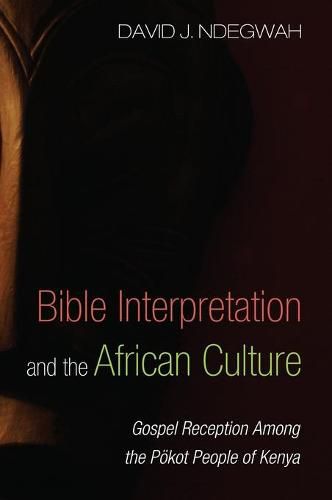Readings Newsletter
Become a Readings Member to make your shopping experience even easier.
Sign in or sign up for free!
You’re not far away from qualifying for FREE standard shipping within Australia
You’ve qualified for FREE standard shipping within Australia
The cart is loading…






This title is printed to order. This book may have been self-published. If so, we cannot guarantee the quality of the content. In the main most books will have gone through the editing process however some may not. We therefore suggest that you be aware of this before ordering this book. If in doubt check either the author or publisher’s details as we are unable to accept any returns unless they are faulty. Please contact us if you have any questions.
This book can be summarized in one sentence: that culture plays a determinant role in the way people perceive, interpret, and, therefore, respond to reality around them–ideas, events, people, and literature, including sacred literature. Thus, when people encounter new reality they perceive and conceptualize it in accordance with their worldview, which is shaped by their culture that is modeled to suit various geographical locations. In order to understand why people around the world behave and act as they do–they choose certain words in what they say and do certain things rather than others–it is important to understand and appreciate this fact. Failure to do so would make it very difficult to engage in any dealings with them, secular or religious, like doing business or evangelization. This is what happened to the Pokot people whose worldview is predominantly communitarian, and yet they were introduced to hermeneutics that are predominantly individualistic, which is at loggerheads with their communal aspirations. The manifestation of this reality is the interpretation of the Good Shepherd parable in the Gospel of John, which the Pokot have understood and contextualized in line with their worldview, against the intentions, goals, and disposition of their evangelizers.
$9.00 standard shipping within Australia
FREE standard shipping within Australia for orders over $100.00
Express & International shipping calculated at checkout
This title is printed to order. This book may have been self-published. If so, we cannot guarantee the quality of the content. In the main most books will have gone through the editing process however some may not. We therefore suggest that you be aware of this before ordering this book. If in doubt check either the author or publisher’s details as we are unable to accept any returns unless they are faulty. Please contact us if you have any questions.
This book can be summarized in one sentence: that culture plays a determinant role in the way people perceive, interpret, and, therefore, respond to reality around them–ideas, events, people, and literature, including sacred literature. Thus, when people encounter new reality they perceive and conceptualize it in accordance with their worldview, which is shaped by their culture that is modeled to suit various geographical locations. In order to understand why people around the world behave and act as they do–they choose certain words in what they say and do certain things rather than others–it is important to understand and appreciate this fact. Failure to do so would make it very difficult to engage in any dealings with them, secular or religious, like doing business or evangelization. This is what happened to the Pokot people whose worldview is predominantly communitarian, and yet they were introduced to hermeneutics that are predominantly individualistic, which is at loggerheads with their communal aspirations. The manifestation of this reality is the interpretation of the Good Shepherd parable in the Gospel of John, which the Pokot have understood and contextualized in line with their worldview, against the intentions, goals, and disposition of their evangelizers.